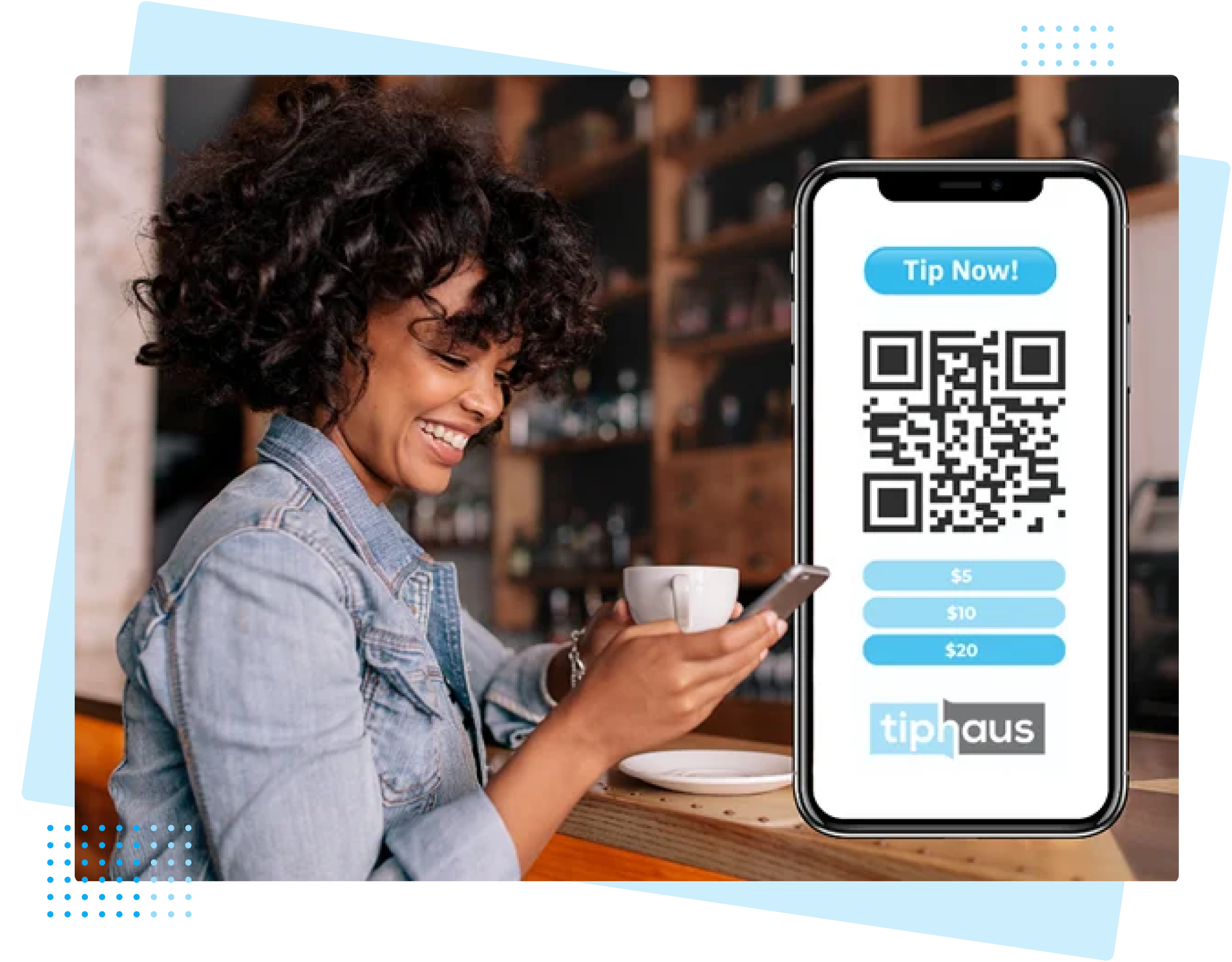Tip Glossary: Your One-Stop Shop for Tip Definitions
Welcome to the Tip Glossary, your one-stop resource for understanding every term related to tip management and distribution. Whether you're new to the industry or refining your team’s payroll and payout systems, this guide provides clear, practical definitions for the most important concepts in modern tipping.

Core Tipping Models
Tip Pooling
A common practice in restaurants where tipped employees (such as servers and bartenders) combine all or a portion of their tips into a pool, which is then redistributed among the group. The goal is to promote teamwork and fairness in customer service, ensuring that all front-of-house employees benefit from shared customer interactions.
Tip Sharing
Unlike pooling, tip sharing involves tipped employees distributing a portion of their tips to non-tipped support staff who directly contribute to the guest experience, such as bussers, food runners, and dishwashers. Tip sharing can improve team morale and service quality by recognizing the efforts of back-of-house staff.
Tip-Outs
The practice where a tipped employee, such as a server, gives a portion of their tips to other staff members who supported the service, such as bartenders, food runners, or hosts. Tip-out percentages and rules are typically determined by management policy or team agreements.
Legal and Wage-Related Terms
Tip Credits
A wage provision under the Fair Labor Standards Act (FLSA) that allows U.S. employers to pay tipped employees a reduced direct wage (below minimum wage), as long as tips bring their total earnings up to at least the federal minimum wage. States have varying rules, some prohibit tip credits altogether.
Tipped Wage (or Direct Cash Wage)
The hourly rate an employer pays a tipped employee (e.g., a server or bartender) that is lower than the federal or state minimum wage. This lower rate is permissible under the FLSA, provided the employee's direct wage combined with their tips meets or exceeds the applicable full minimum wage.
Service Charges
Mandatory fees added to a customer’s bill, often for large parties, banquets, or special services. Unlike voluntary tips, service charges are legally considered revenue belonging to the employer. Employers may choose to distribute them to employees but are not required to. Transparency around service charges is critical to avoid guest confusion.
Credit Card Tip Fee (or Tip Processing Fee)
The amount a business deducts from the total credit card tips collected to cover the processing fees charged by the credit card companies (e.g., Visa, Mastercard). Tip management software must accurately account for and apply this deduction according to local labor laws before distributing the net tip amount to employees.

Operational Setup & Calculation
Tip Calculations
The mathematical process used to determine precisely how the total collected tips are divided among eligible employees. This calculation can be based on sales volume, hours worked, or a set of defined rules. Automating this process is a critical step in eliminating human error and significantly reducing the administrative time spent on manual spreadsheet reconciliation.
Tip Rules / Tip Logic
The set of defined, quantitative guidelines programmed into tip management software (like TipHaus) that dictate the structure of a pool or share. These rules determine specific percentages, point values, or allocation methods for each job code. Having flexible, centralized tip logic is necessary for adapting to complex operational structures.
Tip Job Codes
Specific labels or classifications used within the Point-of-Sale (POS) system and tip management software to accurately identify employee roles (e.g., "Lead Server," "Tier 2 Busser," "Lead Bartender"). These codes are essential for applying differential tip rules or implementing tiered compensation based on experience or responsibility.
Net Sales vs. Gross Sales Tipping
Two different bases for calculating tips in tip pooling or sharing systems:
Custom Team Adjustments
The necessary functionality within tip software that allows for flexible, check-by-check tip distribution in unique "one-off" scenarios, like a private banquet or when multiple staff members serve one large table. It overrides standard tip pools for selected sales, enabling you to specifically choose employees and distribute tips based on equal splits, custom dollar amounts, or percentages. This provides a precise way to manage tips for specific events and atypical service setups that your normal rules don't cover.

Tip Distribution & Payroll Processes
Tip Reconciliation
The process of verifying that the tips collected (via credit card, cash, QR codes, etc.) match the amounts distributed to employees. This ensures accuracy, prevents disputes, and provides a defensible audit trail for compliance purposes.
Tip Distribution
The final step of the tip-out process, transferring the calculated tip amounts from the employer to the employee. In modern, automated systems, this process is increasingly digital, which eliminates the security and time concerns associated with handling large amounts of cash. The industry best practice is digital, same-day payment.
Payroll Processing (Tips)
The final step of integrating all tip data, including cash tips reported, credit card tips distributed, and any service charges, directly into the employer's payroll system for accurate tax withholding and W-2 reporting. The most efficient solutions offer customized, streamlined exports (often in 2-click format) compatible with specific payroll providers.

TipHaus-Specific Solutions
Time-of-Sale Distribution
A highly transparent and accurate method of tip management where tips are tracked and allocated to employees at the exact moment of the sale, rather than a single, end-of-shift reconciliation. This method ensures employees earn every tip they are due and drastically simplifies the shift closing process, improving overall accuracy.
Cashless Tipping (Cheers by TipHaus)
The modern method by which a customer leaves a tip digitally (via a credit card, mobile app, or QR code) instead of using physical currency. This shift is what drives the necessity for automated tip calculation and daily digital payout solutions.
Earned Tip Access (ETA)
A modern benefit that allows employees to access their earned tips in real time or before the regular payroll cycle. ETA reduces financial stress for hourly workers, increases retention, and eliminates the need for daily cash payouts.
HausMoney
A proprietary financial solution from TipHaus that provides service industry employees with daily access to their tips deposited directly into a free digital account. This platform offers an all-in-one mobile app for managing the account, a physical/virtual Mastercard for spending, and features like Apple Pay/Google Pay integration. Uniquely, the card helps users build or boost their credit history with every transaction by reporting payment history to major bureaus, all with no annual fees or interest charges.
HausDirect
One of the tip payout options offered through TipHaus's Earned Tip Access program, designed for employees who prefer to use their existing banking relationship. It provides fast and convenient daily tip payments by depositing the funds directly into the employee's existing checking account via their linked debit card. This option requires only a quick sign-up process without opening a new account and allows employees to easily change the debit card used for deposits as needed.
Looking for a term you can’t find? Email us at marketing@tiphaus.com and we’ll make sure it gets added.
If navigating the tipping landscape feels overwhelming, TipHaus is here to help. Reach out anytime to schedule a demo or start your free trial.